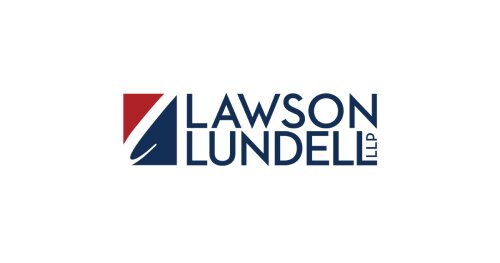Best General Litigation Lawyers in Yellowknife
Share your needs with us, get contacted by law firms.
Free. Takes 2 min.
List of the best lawyers in Yellowknife, Canada
Canada General Litigation Legal Articles
Browse our 1 legal article about General Litigation in Canada written by expert lawyers.
- How to Claim Personal Injury Damages in Ontario Canada
- Victims have two years from the date of the accident to initiate a lawsuit against the at-fault driver in Ontario. Ontario uses a hybrid system where you receive immediate "no-fault" benefits regardless of who caused the crash, while also retaining the right to sue for additional damages. To successfully sue... Read more →
About Litigation Law in Yellowknife, Canada
Litigation law in Yellowknife, located in the Northwest Territories of Canada, involves legal processes for resolving disputes in court. It encompasses a range of civil litigation matters such as contract disputes, personal injury claims, property disputes, and professional negligence cases. The legal landscape in Yellowknife, similar to other Canadian jurisdictions, is shaped by both federal and territorial laws and regulations. Local courts are responsible for hearing civil cases, and the legal processes are in accordance with the rules outlined by the Supreme Court of the Northwest Territories and other local regulations.
Why You May Need a Lawyer
Legal disputes can be complex and navigating the litigation process without professional guidance can be challenging. You may need a lawyer if you are involved in situations such as:
- Contract disputes or breaches
- Personal injury claims from accidents
- Property disputes, including boundary issues or lease disagreements
- Business conflicts, such as partnership disputes
- Employment disputes, including wrongful dismissal or harassment
- Defamation claims
- Professional negligence cases
A lawyer can help you understand the legal framework, represent you in court, and work towards a favorable resolution.
Local Laws Overview
In Yellowknife, several key legal principles and laws impact the practice of litigation:
- The Northwest Territories operates under common law, influenced by federal statutes and territorial regulations.
- The Judicature Act governs court proceedings in the Northwest Territories, providing the basic framework for litigation.
- The Rules of the Supreme Court of the Northwest Territories outline procedural guidelines for how litigation should be conducted.
- There are specific regulations concerning small claims and mediation, offering alternative dispute resolution methods.
It's crucial to understand these laws and how they apply to different types of cases when navigating legal proceedings in Yellowknife.
Frequently Asked Questions
What types of cases are typically handled in Yellowknife's civil courts?
Yellowknife's civil courts handle a wide array of cases including contract disputes, personal injury claims, property disputes, and any civil matter falling under the territory’s jurisdiction.
How long does a typical litigation process take in Yellowknife?
The duration of litigation can vary depending on the complexity of the case, court calendars, and the willingness of parties to settle. Simple cases may resolve in months, while more complex ones could take years.
What costs are involved in pursuing litigation in Yellowknife?
Costs include court fees, attorney fees, and other legal expenses. Some cases allow for the recovery of costs, but this is subject to the court’s discretion.
Can I represent myself in court in Yellowknife?
Yes, individuals can represent themselves, but it is often advisable to hire a lawyer due to the complexity of legal proceedings and the potential impact on the outcome of your case.
What is the statute of limitations for starting a lawsuit in Yellowknife?
Generally, the limitation period is two years from the date the cause of action arises, but this can vary depending on the specific type of claim. Consultation with a legal professional is advisable to determine applicable deadlines.
Are there alternatives to going to court for resolving disputes in Yellowknife?
Yes, alternative dispute resolution methods like mediation and arbitration are available, providing faster and potentially less costly means to settle disputes.
What should I bring to a consultation with a litigation lawyer?
Bring all relevant documents related to your case, such as contracts, correspondence, and any evidence supporting your claim or defense.
How can I find a reputable litigation lawyer in Yellowknife?
Consider recommendations, local bar associations, and online legal directories. Credentials and client reviews can also provide insights into a lawyer's reputation.
What happens if I lose my case?
If you lose, you may be ordered to pay the other party’s legal costs, and you might have to seek alternative solutions or consider an appeal, depending on the advice of your lawyer.
Is it necessary to go to court if a settlement is reached in Yellowknife?
If a settlement is reached, it often negates the need for a court trial as the parties agree to resolve the dispute out of court.
Additional Resources
For further assistance or information, consider reaching out to the following resources:
- Northwest Territories Law Society
- The Courts of the Northwest Territories
- Local legal clinics and community services
- The Department of Justice, Northwest Territories
Next Steps
If you're seeking legal assistance in litigation, your next steps should include:
- Scheduling a consultation with a litigation lawyer to discuss your case.
- Gathering all documentation related to your issue.
- Researching your legal options, including mediation or direct negotiation.
- Considering seeking initial advice from legal aid services if cost is a concern.
Taking timely action and consulting with a knowledgeable lawyer will help ensure that your rights are protected and that you are making informed decisions throughout the litigation process.
Lawzana helps you find the best lawyers and law firms in Yellowknife through a curated and pre-screened list of qualified legal professionals. Our platform offers rankings and detailed profiles of attorneys and law firms, allowing you to compare based on practice areas, including General Litigation, experience, and client feedback.
Each profile includes a description of the firm's areas of practice, client reviews, team members and partners, year of establishment, spoken languages, office locations, contact information, social media presence, and any published articles or resources. Most firms on our platform speak English and are experienced in both local and international legal matters.
Get a quote from top-rated law firms in Yellowknife, Canada — quickly, securely, and without unnecessary hassle.
Disclaimer:
The information provided on this page is for general informational purposes only and does not constitute legal advice. While we strive to ensure the accuracy and relevance of the content, legal information may change over time, and interpretations of the law can vary. You should always consult with a qualified legal professional for advice specific to your situation.
We disclaim all liability for actions taken or not taken based on the content of this page. If you believe any information is incorrect or outdated, please contact us, and we will review and update it where appropriate.









